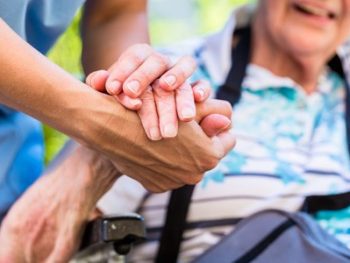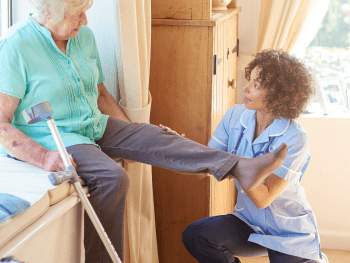The word “bereavement” is something that we normally associate with our experience of the death of someone we have known, loved, and cared for. The word, however, is actually connected with the adjective “bereft” which means “deprived of” or “left without”, so it can actually refer to any experience of loss, whether small or great, temporary or permanent. The great pioneer in the field of death and dying, Elizabeth Kubler-Ross, frequently said, “All of life is loss”. Our experience of life is filled with change and change moves us from various sets of experiences to others. 
When I found it needful and helpful for myself to attend a Bereavement Group following the deaths of my father (2011) and my brother (2013), the grief counselor who facilitated the group said, “A loss is any experience of the absence of someone or something that has been a part of your world. That absence has changed your vision and perception of your world as you had known it and your experience of it.”
If you think about that for a bit, we are experiencing loss frequently in our lives on all sorts of levels. These can be seemingly small and temporary. There is a commercial currently running on television of a thirty- or forty-something year old white collar worker (wearing a necktie) probably just ready to leave for work. He is peering at the faucet in his kitchen sink which is NOT running. His exasperated remark is, “THIS isn’t on the schedule!” Maybe to make this more personal, consider your own reaction and behavior when you cannot find your car keys! Relatively small, insignificant, and temporary losses, perhaps- but they alter the individual’s perception of an efficient and smoothly-running world.

When we do endure the death of someone we have loved, or if we are the victim of a crime or a natural disaster, or if we have lost our job, or if we are coming to terms with the loss of our personal powers through illness or aging, we are in a state of bereavement whether we are conscious of it or accepting of it or not. Kubler-Ross also used the word “denial” to describe an experience where we avoid recognizing the loss. It is a way of defending ourselves against our own feelings of powerlessness in not knowing how to handle the change of our world-view. Sadly, many persons decide simply to “Soldier on” or “Return to business as usual”.
After a death, a very common reaction is “It’s all over now. I don’t need to bother with anything more.” But loss has far-reaching effects on our lives, touching on our emotions, our physical health, our material and financial security, our social interactions and relationships with others, our occupational and recreational involvements, and our spirituality or life-direction. These effects can be uncomfortable, stressful, and even debilitating.
Beginning on Monday, February 3, 2020, Pemi-Baker Community Health will be offering a new Bereavement Group series entitled “THE FULL IMPACT OF GRIEF”. Each session will look at a particular aspect of our lives to gain a greater understanding of how our loss has affected that area of our existence. We will explore ways we can process our responses and reactions. The group will meet in the Grady Conference Room at Speare Memorial Hospital, beginning promptly at 12:30pm and concluding by 2:00pm. The group will meet weekly through Monday, March 16, 2020. There is no fee for attendance.
Pemi-Baker Community Health will also be resuming its monthly Drop-In Bereavement Group which meets on the LAST WEDNESDAY of each month in the Main Conference Room at Pemi-Baker’s offices at Boulder Point in Plymouth. This group is less formal with no set curriculum or session topics, though take-home reading materials are made available. The first session of the Drop-In Bereavement group for this new year is on Wednesday, January 29, 2020, beginning promptly at 5:30pm and wrapping up by 7:00pm. Again, there is no fee for attendance.
Both Groups are facilitated by Guy Tillson, MDiv, MA, Bereavement Counselor and Hospice Spiritual Counselor for Pemi-Baker Community Health. He may be contacted at gtillson@pbhha.org or at 603 536-2232, Extension 206, if you have any questions or concerns.
~by Guy Tillson



 Self Care for Caregivers
Self Care for Caregivers
















